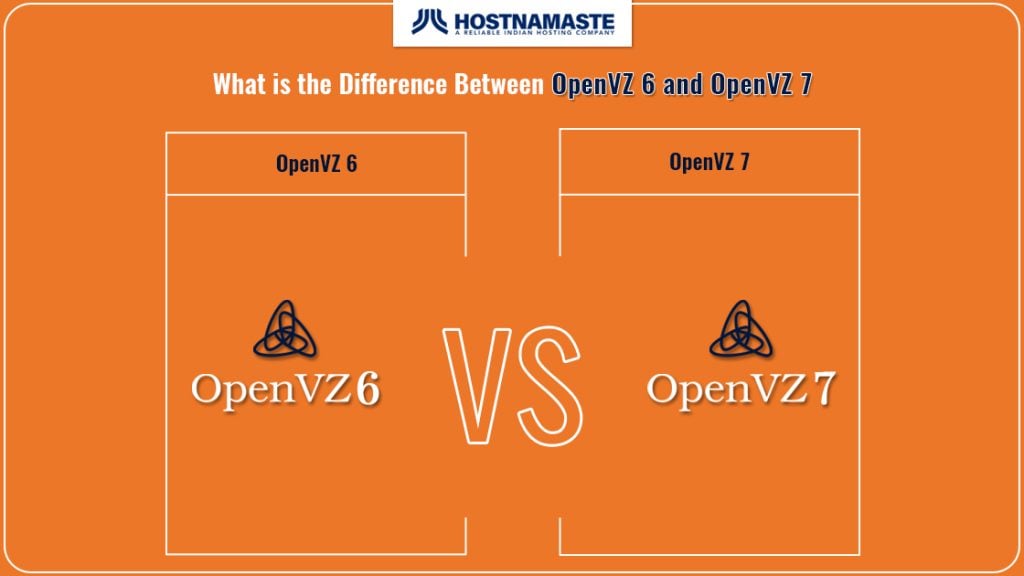
What is the Difference Between OpenVZ 6 and OpenVZ 7? – HostNamaste.com
It’s been some time since the newest version of OpenVZ has been launched in the market and made available all across the world. I’ve been noticing many people asking around on several sites about the difference between the latest version and the former one.
I’m dejected to witness that many users aren’t even aware of the change or the fact that Open VZ 6 is being discontinued by the end of 2019. It means that the ones who still haven’t migrated their containers to the latest OpenVZ 7, you might want to reconsider.
I know saying goodbye to OpenVZ 6 can be tough. I was saddened when I’d heard of the news and although I was thrilled to try out the newer version, I was afraid the day is soon going to approach when OpenVZ 6’s virtualization technology will no longer be supported.
I’ve continued to love using Open VZ 6 for so many years and although the latter version isn’t all that diverse from the prior one, the two still have a few differences one should be aware of.
Of course, switching to Open VZ 7 is not just a crucial step, but also a beneficial one. It’s got various upgrades that can essentially augment your hosting experience by a great deal.
Before we start narrowing down the difference between OpenVZ 6 and OpenVZ 7, let’s first understand what OpenVZ really is.
What is OpenVZ?

OpenVZ is a server technology that operates on operating-system-level virtualization. The technology is based on the Linux kernel and OS. Virtualization here stands for creating a persona that is rather Virtual and gives the impression of being there but doesn’t actually exist.
Now the real question is; will the container-based virtualization allow me to be fully isolated and independent from the host node? Unfortunately, it does not allow you to be completely independent of the host node, unlike KVM virtualization. Although, the latest OpenVZ has now begun to support hardware virtualization that procures an isolated environment.
It does, however, allow you to share the same OS with other containers and at the same time gives you the privilege to operate as a stand-alone and protected Linux Container with the impression of being isolated. Your container is allowed to have root access, independent IP, storage, documents, applications, and other important files.
Like any fully isolated container, OpenVZ also allows you to reboot it solitarily. Since OpenVZ is a Linux-based virtualization OS, you can only run it on operating systems that support Linux distributions such as Centos, Debian, etc.
There’s another thing called the Kernel that you need to learn about. There are so many Linux Distributions and users tend to optimize them all. All of these distributions are dissimilar from one another and the only thing they have in common is the Kernel. I can guarantee you must have heard the term kernel thrown around here and there. It’s time you get acquainted with what it really does.
The kernel is the spine of a computer. All operating systems optimize a kernel version and it is the most crucial link between the hardware of your computer and its software. Without the kernel, the hardware will just be a piece of scrap and the software will cease to work.
The kernel is the bridge that allows requests sent by the users to process. The Linux kernel powers most of the smartphones and computers that are being made today. When the kernel helps in interfacing the application running on your device with the hardware, it efficiently creates a channel that in turn, allows the communication to free-flow.
Now that we’ve discussed what OpenVZ and the kernel is, let’s narrow down the comparison between the former and the latest versions of OpenVZ.
The newest OpenVZ 7 has become worldwide. This means that the outdated OpenVZ 6 is no longer the superior one. Many web hosts had to migrate their virtual servers to OpenVZ 7 based nodes. While a lot of users are aware of the upgrades that the new version has brought, many of you are still migrating without acknowledging what are the key differences between the two.
Here’s the difference between OpenVZ 6 and OpenVZ 7.
Updated Kernel Version
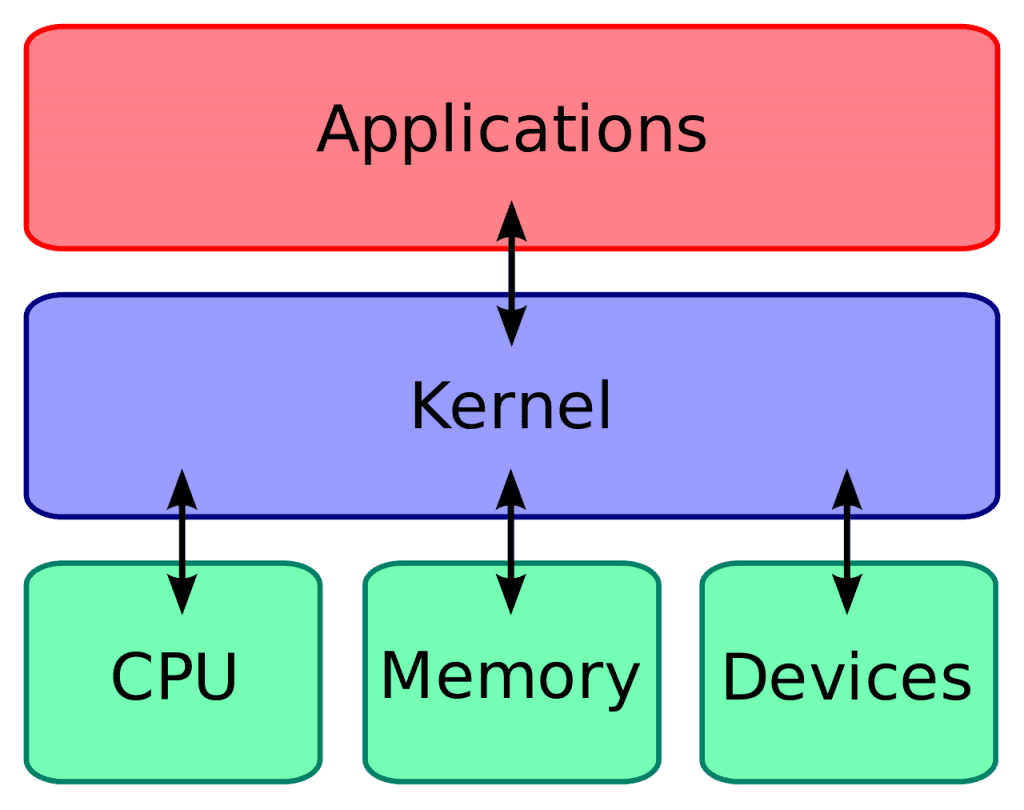
The kernels are constantly evolving and bring out newer versions every once in a while. Kernels work in the background and users don’t pay much heed to it which is why people aren’t aware that OpenVZ was introduced with an upgraded kernel version.
The former OpenVZ 6 version operated on the kernel version 2.6.32. It was sturdy enough, however, hosts have noticed that it lacked oftentimes while interfacing. As soon as OpenVZ was in the game, a lot of users, such as myself, have embraced the newest 3.x kernel base that is comparatively more powerful.
Hardware Virtualization
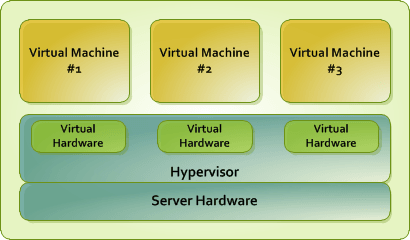
One of the biggest drawbacks of OpenVZ 6 was its denial of hardware virtualization. It was a major setback and the reason why hosts lean more towards KVM virtualization.
It is a rather brilliant step to introduce support for Hardware Virtualization since it allows complete isolation and a segregated environment. Allowing hardware virtualization does not necessarily mean that you cannot share your host node anymore. Everything concerning the host node will be the same as OpenVZ 6. The only additional feature that OpenVZ 7 has initiated is the support for hardware virtualization.
Fresh EZ template format
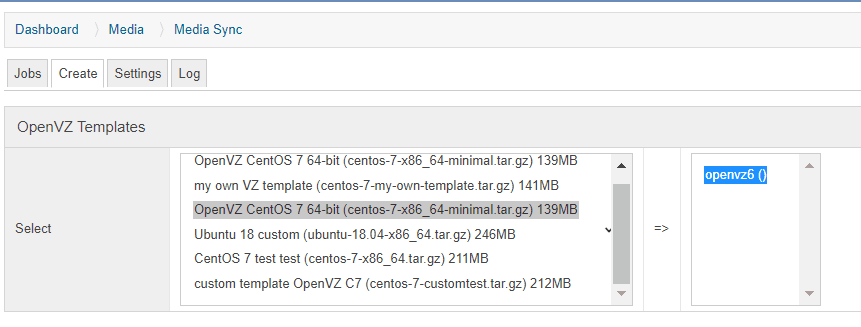
EZ templates are fun to play with. They help in making the OpenVZ experience more fulfilling and convenient. If it weren’t for the EZ templates, installation and reinstallation of the containers would have been a tedious job. In addition to that, the templates also help in making the customization a little less of a nightmare. My favourite addition to OpenVZ 7 is the latest format of EZ template that has been launched. The template game is now efficiently stronger and easier at the same time.
Newer Operating System
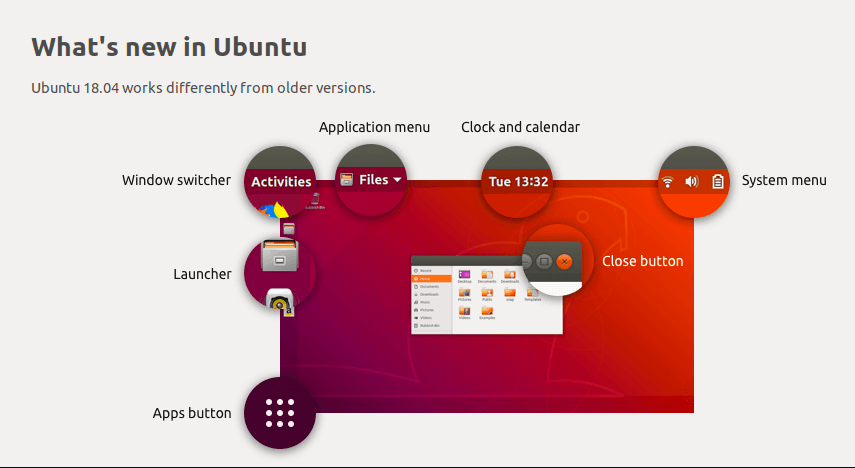
OpenVZ 6 didn’t support the Ubuntu distributed containers and it put a massive hindrance on its progress. OpenVZ 7, on the other hand, is fully supported to run Ubuntu 18.04 containers and is capable of functioning well under the upgrade.
Well, there you have it. Everything that the new OpenVZ 7 contains which OpenVZ 6 lacked is narrowed down in thorough detail. I admit that OpenVZ 7 is still not yet as advanced as the KVM Virtualization, though if it keeps on the trail of upgrades, OpenVZ 7 has the potential to become significantly more important than OpenVZ 6 ever could.
OpenVZ 6 is coming to its demise towards the end of this year and it’s wiser to migrate your containers to the newer version if you haven’t yet. Now that you are aware of the upgrades, it’ll be easier for you to embrace OpenVZ 7 with an open mind.





Great post to understand the Difference Between OpenVZ 6 and OpenVZ 7.
Thanks for the appreciation, LowEndReview.